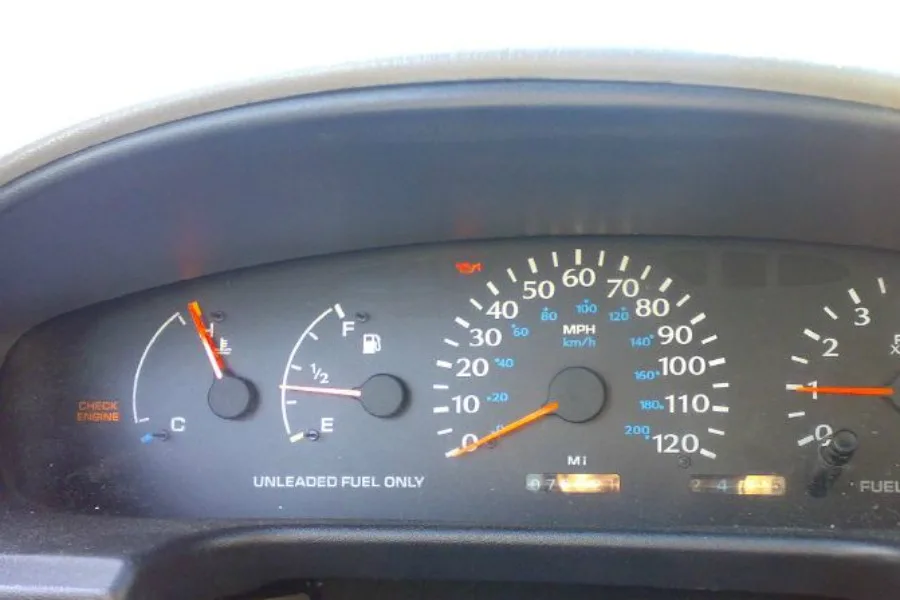Have you ever been driving happily down the road when all of a sudden you notice the temperature gauge slowly creeping up? Then, before you know it, it’s either stuck in the big, bad red zone, a notification light is glowing, or there is steam coming from under the hood?! When this happens, you need to do something immediately. Do not wait. Here’s what to do if your car overheats.

What to do if Your Car Overheats
Before we get into the causes of a car overheating, there are some steps that you need to take immediately that can help minimize any potential damage to your car until you can get it into a shop. I’m talking as soon as you notice that needle creeping upwards and not stopping.
- First, turn off your AC if it is on.
- If the problem persists, turn on the defrost and the heater as hot as it will go. Cut the fan to high. This will hopefully help remove some of the heat from around the engine as you look for a safe spot to pull off the road. It may also help prevent hundreds or thousands of dollars’ worth of damage. If it’s in the middle of the summer, you are just going to have to deal with the heat and roll down your windows until you can safely get your car to the side of the road.
- As soon as you are safely off the side of the road turn the car OFF. DO NOT continue to drive “just a little further”. Don’t forget to cut your emergency flashers on.
- Pop the hood from the inside of the car, if you can, but do not open the hood with your hands as there’s a risk of being sprayed with hot water or coolant. Coolant in a car that has overheated could be in excess of 230 degrees.
- At this point, you can either call for a tow, or if you are mechanically inclined, wait until the engine cools and see what the problem is. Just remember, NEVER attempt to remove the radiator cap while the engine is hot. You need to wait at least 30 minutes for the engine to cool enough where you can safely lift the hood and inspect for leaks and check the coolant levels.
What Causes a Car to Overheat?
Despite what many people think, hot weather is typically not to blame for your car engine overheating. Instead, there can be many different causes. Some of the most common causes of a car overheating include:
- leaks in the cooling system such as the hoses, water pump, radiator, thermostat housing, head gasket, and other parts
- a stuck or bad thermostat
- a bad radiator
- a bad radiator fans
- the wrong coolant or the wrong mixture of coolant and distilled water
- worn out or cracked hoses
- loose or broken belts
- bad water pump
How to Prevent a Car from Overheating
Luckily, today’s cars are equipped with sophisticated cooling systems equipped with multiple heat sensors and computer-controlled fans to keep the engine running properly, so it’s not very common for newer cars to overheat. However, if you find that your car is getting hot or if it often gets a little hot under the hood, it’s most likely an indication of a larger problem, so be sure you take it to your repair shop or trusted auto expert.
In addition, making sure you follow the manufacturer’s suggested maintenance schedule can make a big difference in how well your car runs and any problems it may or may not develop. Therefore, always take your car into a trusted mechanic for regular maintenance. If you’re not sure where to find an experienced or trustworthy mechanic, take it to the dealership where you bought it.
